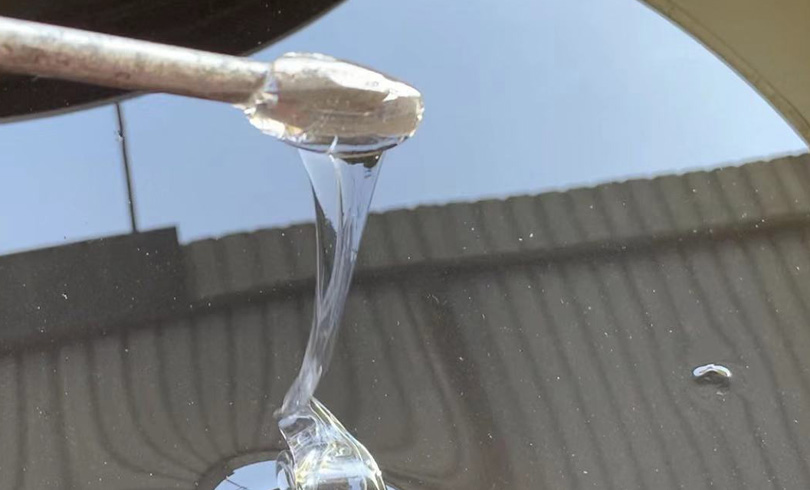ECO USA collects and recycles surplus and expired silicone sealant and caulk in liquid or solid form. These can also be referred to as “room temperature vulcanizing” silicone rubber, RTV for short. RTVs are widely used as water-resistant seals at home for kitchens and bathrooms. Silicone RTV is also heavily used in the construction and automotive industries for water-proofing and adhesive purposes.
There are many kinds of RTV sealants in the industry including epoxy, acrylic, phenolic, and polymers. As we are a silicone recycler, we only collect silicone based RTVs. It can be any brand, any color, and any curing system. As long as it is made from silicone, we are not picky about the type of RTV we collect.
We commonly collect silicone sealants from brands such as American Sealants, Momentive, Dow Corning, DAP, Shinestsu, GE and more.
The only request we have for collecting silicone sealant / caulk is we only take bulk amounts of this material starting at at least half a truckload. We understand there are a lot of expired silicone caulk from individual home projects, however, we are unable to collect small quantities due to the high cost of logistics. We are thinking of ways to pick up this stream in the future.
For the most part, we work closely with large silicone sealant/caulk manufacturers and surplus chemical companies to collect their wide-spec, surplus, and expired materials. Again, we are not picky about this material stream, we collect both uncured silicone sealants / caulks in liquid form as well as cured materials, those have already turned into silicone rubber.
We get a lot of questions about the usability of expired silicone sealant / caulk. We do not recommend using expired materials because the catalyst inside becomes ineffective. This causes curing times, the time it takes the liquid sealant to become a solid, to increase dramatically. The resulting silicone rubber seal is also of poor quality.
The RTV silicone sealant we collect are recycled into polydimethysiloxane silicone oil at our recycling plant in Parkersburg, USA. We generally receive this material stream in 55 gallon drums. The silicone sealant / caulk we collect are first carefully tested when it arrives at our plant. Then, the materials are placed into large reactors where it is heated at high temperatures. This process chemically breaks down the silicone sealant to produce dimethylcyclosiloxane, a raw material needed to make silicone oil, our final product.
We are not going to go over our recycling process here, click here to learn more about our silicone rubber recycling process.
YES! Products made from silicone rubber such as baking mats, kitchen utensils, baby bottles and pacifiers are recyclable and can be recycled. At ECO USA, we're the first and currently only full-scale silicone recycling plant in the USA.
Uncured silicone rubber contains polymers of different chain lengths. It always comprises a principal silicon-oxygen chain (the siloxane backbone) and an organic moiety bound to the silicon.
ECO USA collects and recycles all types of silicone based specialty chemicals. As our recycling process is quite robust, we collect many types of expired and surplus silanes, siloxanes, and dimethicones.
Commonly labelled as a “cyclomethicone” or “cyclosiloxane”, D4 and D5 (octamethylcyclotetrasiloxane and decamethylcyclopentasiloxane repectively) are common ingredients in the cosmetic industry...

